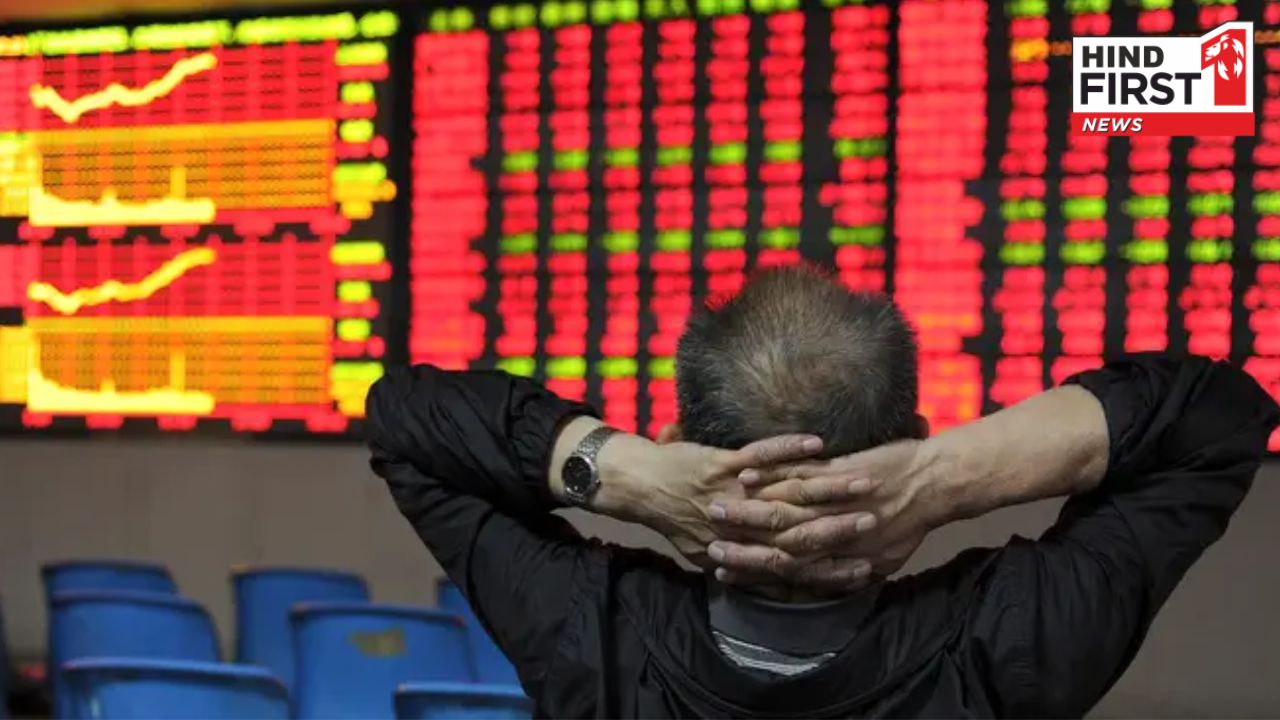Indian Stock Market Dips as Global Tensions Rise
Indian Stock Market Dips: On Thursday, the Indian stock market experienced a significant crash, with key indices like Sensex and Nifty 50 opening more than 1% lower. This decline was primarily driven by concerns over escalating geopolitical tensions in the Middle East, particularly fears of an Iran-Israel war. The Sensex fell by 1,264.20 points, or 1.50%, opening at 83,002.09. Meanwhile, the Nifty 50 dropped 344.05 points, or 1.33%, starting at 25,452.85. In just four sessions, the Nifty 50 has seen a decline of 3%. Most sectors faced heavy losses, with Nifty Auto, Nifty FMCG, Nifty Realty, and Nifty Private Bank being the most affected. The Nifty Midcap 100 and Nifty Smallcap 100 indices also declined. Overall, the market capitalization of all companies listed on the Bombay Stock Exchange (BSE) dropped by more than Rs.5.5 lakh crore, bringing it down to around Rs.469 lakh crore. Mixed signals from Asian markets and the US stock market, along with new guidelines from the Securities and Exchange Board of India (SEBI) for derivatives trading, further dampened market sentiment. Here are five key reasons for the crash: 
Israel-Iran Tensions
Tensions in the Middle East escalated after Iran launched around 200 missiles at Israel on October 1, responding to the killing of Hezbollah leader Hassan Nasrallah. Israel has vowed to retaliate, and there are fears of further escalation. Recent reports indicate that at least six people were killed in an Israeli attack on a health center in Beirut.
Foreign Institutional Investor (FII) Selling
Foreign institutional investors have been selling off equities, with sales amounting to 5,579.35 crore on October 1. In contrast, domestic institutional investors bought shares worth Rs. 4,609.55 crore on the same day. Analysts suggest that FIIs might continue to sell as investments shift towards the bullish Chinese market.Rising Crude Oil Prices
Concerns about escalating conflicts in the region have led to an increase in crude oil prices. Brent crude futures rose 24% to $74.82 a barrel, while US West Texas Intermediate crude futures climbed 1.37% to $71.06 a barrel. Higher oil prices can significantly impact India's import bills.New SEBI Guidelines
The introduction of new trading guidelines by SEBI has also contributed to the bearish sentiment in the market.Mixed Global Cues
The performance of Asian and US markets overnight showed mixed signals, adding to the uncertainty and lack of confidence among investors. Also read: Stocks to Watch Today: Key Developments and Market Moves In summary, the Indian stock market faced a significant downturn due to a combination of geopolitical tensions, rising oil prices, and shifts in investor behavior. Investors are advised to stay informed and cautious in this volatile environment. Next Story


